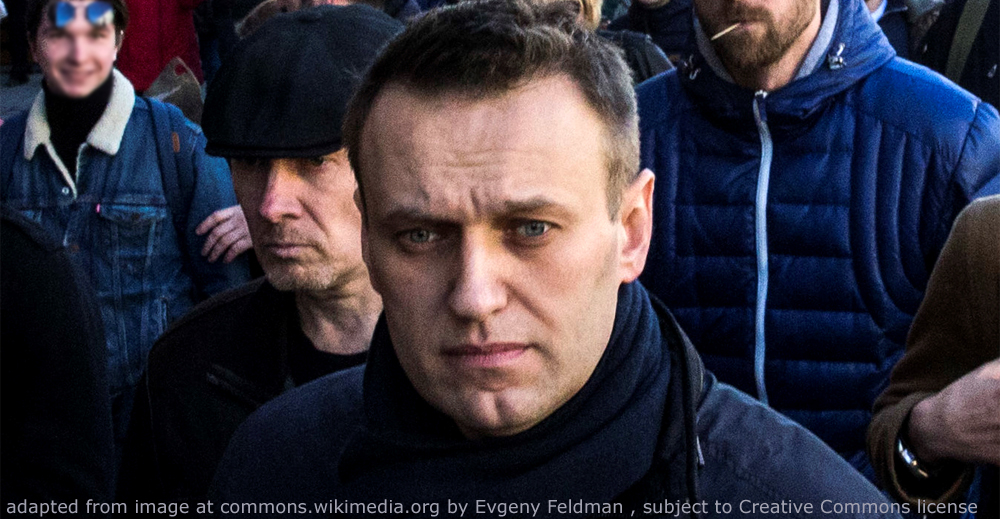As Expected, Navalny Found Guilty On Extremism Charges, Sentenced To 19 Years
Jailed opposition politician Aleksei Navalny, who is already serving a nine-year prison sentence on embezzlement charges that he and his allies say are politically motivated, has been sentenced to 19 years in Russia's harshest prison regime after being found guilty on charges of extremism related to his Anti-Corruption Foundation (FBK).
The court, which was set up in the prison where the 47-year-old is being held, 250 kilometers east of Moscow, convicted him on August 4 under six articles of the Criminal Code, including creating and financing an extremist community, calling for extremism, rehabilitating Nazism, and involving minors in dangerous acts.
The prosecution, which sought a 20-year prison sentence, had asked the court to order Navalny to serve any new prison term in a “special regime” site, a term that refers to a prison with the highest level of security and the harshest restrictions for inmates. The designation comes even though Russian law states it should be given to those with life sentences or "especially dangerous recidivists."
Navalny reacted to the sentence on Facebook, saying the number of years does not matter. "I perfectly understand that, like many political prisoners, I am sitting on a life sentence. Where life is measured by the term of my life or the term of life of this regime," he said.
Navalny urged his compatriots to keep resisting the Kremlin and what he said are its attempts to "frighten" Russians "and deprive you of the will to resist."
He added that Russians are being forced to surrender their country "without a fight to a gang of traitors, thieves and scoundrels who have seized power.... Don't lose the will to resist."
Other reaction to the sentence came swiftly from the European Union and the United States, which slammed the verdict in comments that referred to a "sham" and "unjust" trial.
"The latest verdict in yet another sham trial against Aleksei Navalny is unacceptable. This arbitrary conviction is the response to his courage to speak critically against the Kremlin’s regime," European Council President Charles Michel said in a social media post after the verdict was announced.
The United States condemned the sentence in a statement issued by State Department spokesman Matthew Miller, who said the charges against Navalny were unfounded.
"This is an unjust conclusion to an unjust trial," Miller said. "For years, the Kremlin has attempted to silence Navalny and prevent his calls for transparency and accountability from reaching the Russian people."
Noting the secrecy of the trial and lack of access to evidence provided to his lawyers, Miller said Russian authorities "illustrated yet again both the baselessness of their case and the lack of due process afforded to those who dare to criticize the regime."
British Foreign Secretary James Cleverly condemned the jail term and said the United Kingdom calls for his immediate release.
Amnesty International called the new sentence "little more than a stealthily imposed life sentence" and "a sinister act of political vengeance that not only targets Navalny personally but serves as a warning to state critics across the country."
Volker Turk, the UN high commissioner for human rights, said the new sentence "raises renewed serious concerns about judicial harassment and instrumentalization of the court system for political purposes in Russia."
It was not immediately clear if Navalny's new sentence was added to his previous ones, or if he now faces a total of 19 years in prison.
Navalny spokeswoman Kira Yarmysh told AFP that the new sentence will take into account the around 2 1/2 years he already served as well as a 10-month house arrest in 2014-15.
Navalny's co-defendant, the former technical director of Navalny Live, Daniel Kholodny was sentenced to eight years in prison, Novaya Gazeta.Europe reported, citing his lawyer.
The case against Navalny dealt with the FBK, which, at the request of the prosecutor's office, was declared extremist in 2021, banning all its activities in Russia.
The "special regime" prison that the prosecution requested is a system in which inmates stay in cells either alone, in pairs, or in fours. The cells have additional metal bars on windows and doors, nonstop lighting and video surveillance. Inmates are not allowed to talk to cellmates and when they move inside the penitentiary, it is in a bowed position with their hands cuffed behind their back as they are escorted by guards and a dog.
They can request one or two hours of walking outside in specially fenced cubes where there is no direct sunlight. Special regime inmates are not allowed to communicate with friends or relatives, and can have no visits in the first 10 years of their sentences.
Navalny, one of President Vladimir Putin's fiercest critics, had predicted the harsh sentence in a post on social media a day earlier, saying he expected a sentence of 15 years to 20 years, despite what he claimed was "nonsensical" evidence presented during his closed-door trial.
He rejected all the charges against him as politically motivated and accused the Kremlin of seeking to keep him behind bars for life and to keep Russians from voicing dissent.
Navalny's current combined prison sentence is 11 1/2 years, including the embezzlement conviction, which was added to a shorter sentence for violating the terms of an earlier parole when he was medically evacuated after suffering a near-fatal poisoning.
All the charges are widely seen as retribution for his efforts to expose what he describes as the pervasive lawlessness, corruption, and repression by Putin and his political system.
Despite harassment, arrests, physical attacks, and the nerve-agent poisoning in August 2020, Navalny continues to play the role of opposition agitator, striving to remain relevant even in isolation.
[please be sure to consider clicking the support button, to support this web project and related efforts]
Key Words: Russia, Navalny, Human Rights, Russian Prisons, Russian Politics, Russian Oppression, Russian Opposition
